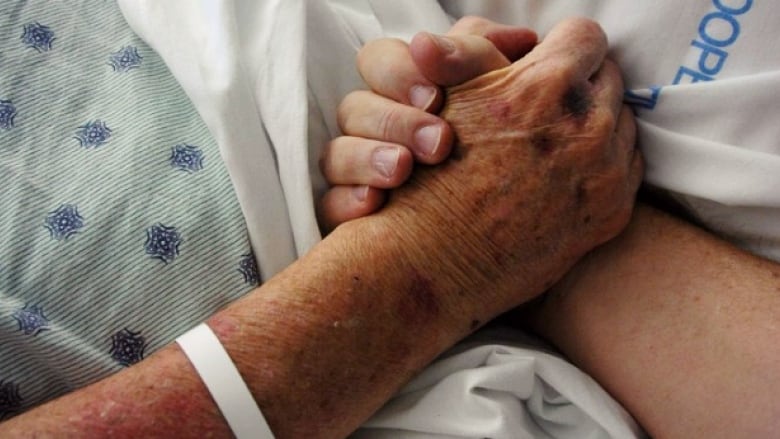Only 1 in 10 requests for a medically assisted death granted, Toronto doctor says
Critics say law is too restrictive and forced Quebec woman to starve herself after being denied

While more than 118 people have received a doctor-assisted death since the procedure became legal in Canada, that number likely represents only one tenthof those who made "serious requests" for medical help in dying.
That ratio is drawn from the experiences of Dr. Gary Rodin,who help to draft the procedures and protocols for how hospitals in Toronto's University Health Network agree togrant patientsa medically assisted death.
Watch the documentaryRoad to Mercyon CBC Firsthand on Thursday October 6 at 9 p.m. on CBC TV.
"To give you a rough guide, we could say that for 10serious requests that would come forward, only actually about one of them would proceed towards this intervention," Rodin told CBC News.
- More than 100 Canadians have opted for assisted death since law passed
- Assisted-dying legislation faces new legal challenge in B.C.
- Changes needed to boost end-of-life care in Canada: doctors
Rodin explained that patients can be denied a medically assisted death for any number of reasons. A person's condition may not be advanced enough to determine if the patient's death is reasonably foreseeable, or a patient may apply for the procedure when they are only 24 to 48 hours away from dying.
In order for a medical institution to grant an assisted-dying request, a process has to unfold that includes a period of reflection, ruling out those in the final day or two of their lives, he said.
CBC News reported Friday that in Ontario, British Columbia, Alberta and Saskatchewan alone there were 118 medically assisted deaths since the procedure became law June 17.
The Yukon, New Brunswick, Nova Scotia and Quebec could not, or would not, provide data, while the remaining provinces and territories said there were no instances to report at present.
Fighting to die
Some, including NDP MP MurrayRankin, the party's justice critic,have argued thatthe law passed by Parliamentis too restrictive andmore people in Canadashould have access to the procedure.
"The government thinks everything is fine now? It's not fine," Rankin said. "People are suffering, and it's the government that has caused this to occur by not allowing people... to avail themselves of this service. That's a disturbing fact."
In onehigh-profile case in Quebec, a woman with multiple sclerosisreferred to asHlne L.who did not qualify to receive the procedurestarved herself to death just before her 70th birthday.
Quebec's College of Physicians says it believes there will be more cases like this and is working on a plan to help doctors with patients who are starving themselves to death after having been denied a medically assisted death.
Court challenge
Julia Lamb, 25, of Chilliwack B.C., who has spinal muscular atrophy, has joined a legal challenge against the law launched by the British Columbia Civil Liberties Association.
The lawsuit is challenging the provision in the assisted dying legislation that restricts a medically assisted death only to those who are suffering from a terminal illness and whose death is reasonably foreseeable.
"If my suffering becomes intolerable, I would like to be able to make a final choice about how much suffering to endure," Lamb said.
A spokesperson for Health MinisterJane Philpott said in a statement that the federal government understands the difficult choices families are being forced to make.
"In developing federal legislation, our government considered a wide range of opinions and circumstances, and needed to ensure it struck the appropriate balance in providing access to medical assistance in dying, while ensuring protection for our most vulnerable," the statement said. "Now enacted, and after passing with bi-partisan support, we firmly believe that Bill C-14 does strike this balance."












_(720p).jpg)


 OFFICIAL HD MUSIC VIDEO.jpg)
.jpg)



























































































